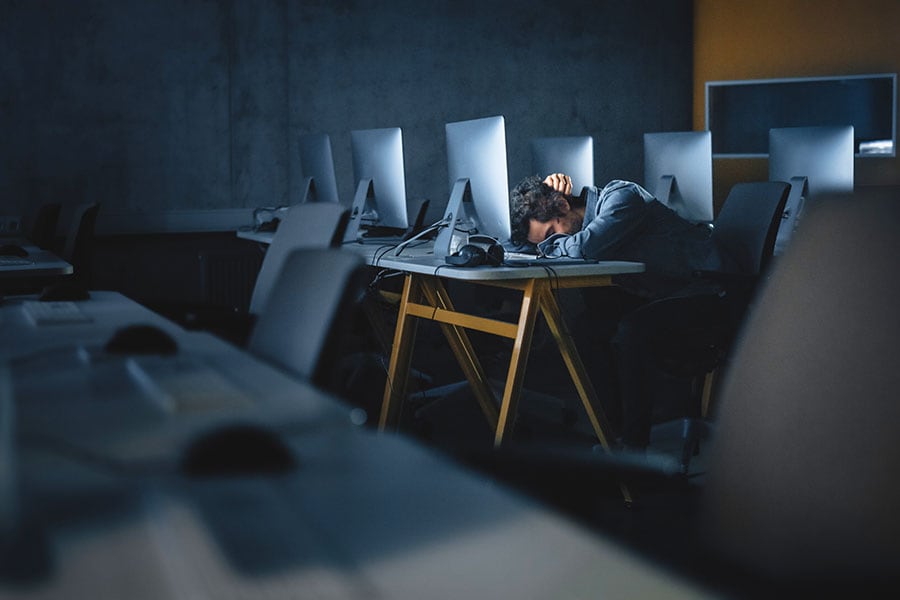
Working after-hours might not be as productive as you think: Slack survey
Around 40 percent of office workers say they regularly work overtime. The survey found that most people who work outside their office hours (54 percent) don't do so by choice but rather feel obliged to do so
 Working after-hours repeatedly has consequences. Working after-hours repeatedly has consequences.
Image: Shutterstock
Working after-hours repeatedly has consequences. Working after-hours repeatedly has consequences.
Image: Shutterstock
Some employees stack up nocturnal work sessions throughout the week in order to get ahead on their work tasks. However this strategy proves counterproductive and even damaging to their mental health, as a Slack survey* reveals.
In fact, around 40% of office workers say they regularly work overtime. The survey found that most people who work outside their office hours (54%) don't do so by choice but rather feel obliged to do so.
Employees who turn to doing overtime sessions often feel that they don't have enough time to complete all the items on their to-do list during the workday. Competing priorities prevent them from organizing their time as they see fit, which in their view is detrimental to their productivity.
Meeting load comes up frequently as an obstacle. One employee in four feels that they spend too much time in meetings, which now take place either remotely or around a table. This feeling is particularly widespread among managers, especially executives (55%).
Some 25% of working people say they spend a large part of their time writing or answering email messages. And it's not just an impression: according to a LiveCareer survey, office workers spend the equivalent of three weeks or even a month each year sorting through their professional mailboxes.







